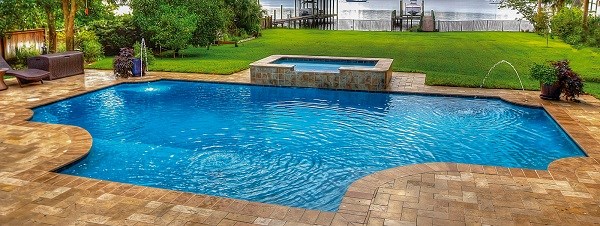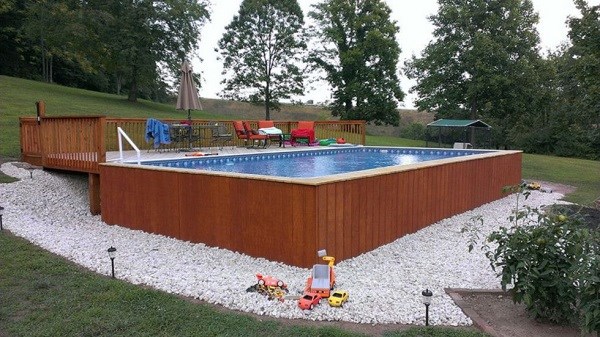So you are considering removing your pool? Here, we outline the pros and cons, different methods and costs involved to help you to make the best decision for you…
Pros of Removing a Pool:
– You save time and money on swimming pool maintenance
– If you sell your house, it may increase the number of potential buyers and make your home easier to sell
– You no longer have the additional hazards and liabilities that come with pool ownership
– You have more yard space for other activities or landscaping opportunities
– If you have young children, removing your pool eliminates the potential safety hazards associated with pool ownership
– Never having to worry about constant changes to swimming pool regulations Victoria
Cons of Removing a Pool:
– No more pool to swim in…
If you love using your pool and plan to live in the same home for the foreseeable future, then keeping it is worth the cost of upkeep. But if you’re an infrequent swimmer, the benefits of pool removal far outnumber the drawbacks.
Option 1: Filling in a pool (partial removal)
How it’s done:
Filling in a pool involves draining the pool, drilling large diametre holes in the bottom, demolishing the top layer of the pool wall(18″ – 25″), installing a layer of scoria stone on the bottom, covering the scoria with geo-fabric, placing the rubble of the pool walls to the geo-fabric, filling in the pool with additional dirt and topsoil, and compacting the soil.
Partly removing and filling in a pool is the most common form of pool demolition and is generally the least expensive option.?
Pros of pool fill in:
– The most affordable option of inground pool removal
– Fastest to complete – typically 2-3 days
Cons of pool fill in
– This will be something you have to disclose to future buyers of the property, and it could affect the value of your home
– If this method isn’t performed properly, there is an increased risk of sinkage, swelling, or lack of proper seepage. (Have the backfill performed by an engineering technician greatly decreases the chances of this.)
– A majority of cities consider the area of the former pool to be non-buildable, meaning no additions or dwellings can exist there. However, the area is still suitable for sheds, concrete, landscaping, trees, etc
Option 2: Complete pool removal
How it’s done:
The pool is drained, and all materials, like concrete/ shotcrete, fiberglass, liner, re-bar, etc., are removed and carted away of the property / site.
The area is then filled with soil material and/or gravel and compacted (without the supervision of an engineer).
Pros of complete pool removal:
– Although you will have to disclose that you fully removed a pool that was once on the property, it should have little to no impact on your home’s value
– With no concrete buried in the old pool, the risk of sinkage and seepage is greatly reduced, even eliminated.
Cons of complete pool removal:
– A majority of cities consider the area of the former pool to be non-buildable, meaning no additions or dwellings can exist there. However, the area is still suitable for sheds, concrete, landscaping, trees, etc.
– This option is more expensive than partial removal.
Removing an Above Ground Pool
There are multiple types of above ground pools, but the removal process is basically the same for each one (and much easier to perform than an inground pool removal).
Generally speaking, hiring a reputable contractor to handle your above ground pool removal is the easiest and best solution.
How Above Ground Pool Removal Works:
Drain the pool – The easiest way to do this is with a pump, and there is typically a sewer point within 30 metres of the pool.
Tear it down – Depending on the type of pool you have and the available access, this process will vary some what, but it typically involves hammer the walls with an excavator, hammering the floor with an excavator, and ripping them apart.
Haul it away – Rent a skip bin or hire a tip truck and bobcat removal company to get rid of the resulting debris, but be sure to recycle whenever possible. This will save on costs and help keep debris out of the landfill. Most professional demolition companies will be able to help with this and in most cases, dispose of the rubbish for you.
Repair the site – Once the pool is gone, there’s going to be a patch of dead grass in its place (or in some cases, a layer of sand or stone). If a new pool is replacing the old one, this won’t matter. But if you want to have grass in its place, your contractor might be able to assist in repairing the grass for a fair price. Be sure to ask!
How much will it cost?
Pool removal cost depends on several factors, like:
Type of pool (above ground or inground)
Size of the pool
Accessibility of the pool area
Method of pool removal
The contractor you choose
The average cost to remove an inground pool ranges from $5,500 to $20,000 for a medium size pool with relatively easy access.
Costs can rise to well over $20,000 for a large pool with a large deck and difficult pool access.
The cost to remove an above ground pool varies considerably—just like inground pool removal—ranging from a few thousand dollars to as much as $8,000 or more in some cases.
Pool Removal Estimates
Pool removals can be costly, especially inground pool removals, so it’s best to get multiple estimates and various opinions on the best way to go about the pool demolition project. We recommend getting quotes from at least three qualified pool removal contractors in your area.
The estimate should be in writing and include all pertinent details, like:
Dates for project start and completion
Payment schedule (pay for work as it’s completed)
Who is responsible for obtaining and paying for any necessary pool removal permits
The equipment that will be used to remove the pool
What will be done to protect your property from damage
How to contact the contractor with any questions, change orders, etc.
Pool Demolition Contractors
Hiring an experienced pool removal contractor to handle the job is important for a number of reasons, but more than anything, it’s for your protection.
Depending on the heavy equipment used to demolish your pool, damage can be done to landscaping, driveways, septic tanks, sewer connections, etc.
An experienced pool removal contractor will carefully consider how to gain access to the pool, and what size/type of equipment is best for your particular swimming pool and yard.
Similarly, when it comes to inground pool removal, backfilling the area improperly can lead to costly problems down the road.
So, no matter what removal method you choose, you should always hire someone who is insured to do the work.
If you are looking for a specialist company in pool removal and pool demolition who uses only the best practices to get the job done right, then please call us at Big Cut Sawing on 0409 066 660 or contact us through our website www.bigcutsawing.com.au



